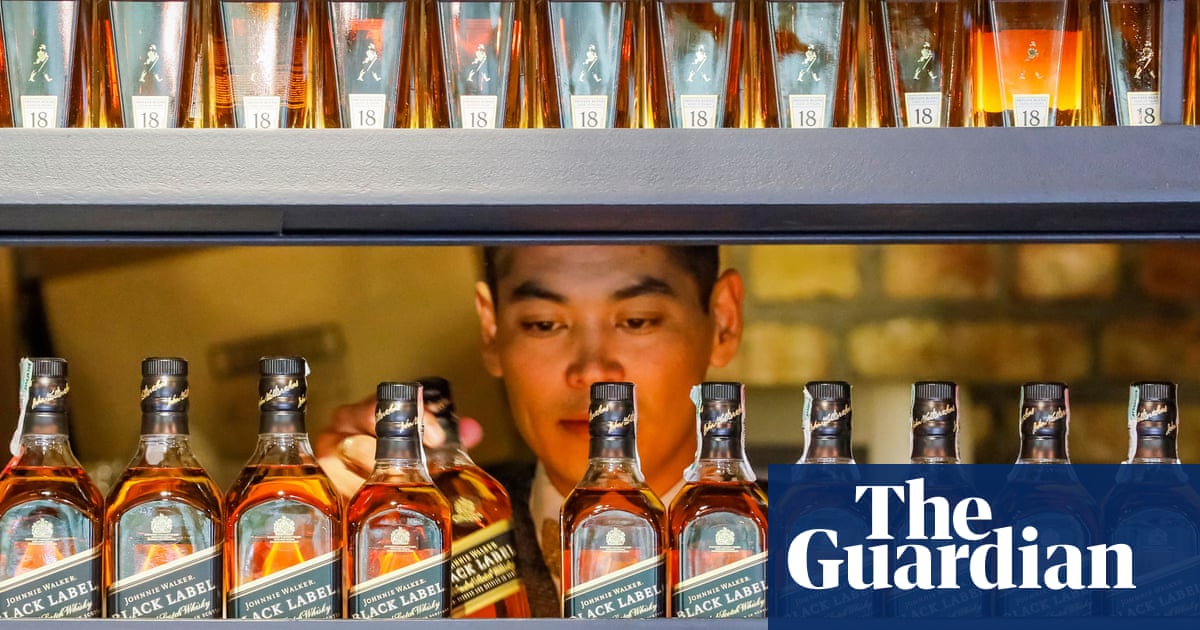Diageo, the drinks business behind Guinness and Johnnie Walker whisky, has said Donald Trump’s tariffs could hit its profits by $150m (£112m) each year, although it expects to be able to cushion about half of the expected blow.
The FTSE 100 group, which sells alcoholic drinks including tequila, gin and whisky, is one of the many businesses that have been hit by Trump’s 10% tariff on UK and European imports.
The company said in an update on Monday that its “long track record of managing international tariffs” gave it confidence to navigate the new regime successfully. It came alongside a pledge to cut costs by about $500m over the next three years, as part of a wider programme designed to improve its efficiency.
In February the company estimated that new trade restrictions could lead to a$200m reduction in operating profitover the last four months of its financial year to the end of June.
But plans to cut costs raises the prospect for job cuts at the business, which operates in 180 countries and employs more than 30,000 people around the world.
Aarin Chiekrie, an equity analyst at the broker Hargreaves Lansdown, said Diageo could also lean on price rises to help offset the impact of tariffs. “But this will take a bit of time to enact,” he added. “Zooming out, the picture is starting to look a touch better than it has for some time.
“Sales to China are largely unaffected by tariffs, Latin America and the Caribbean are lapping some weak comparable figures, and there are early signs that the industry is recovering from its cyclical hangover.”
Diageo, which also owns Smirnoff vodka and Tanqueray gin, reported sales growth of 5.9% in its third quarter of the year ending in March, better than forecast, as wholesalers in the US stocked up before anticipated tariffs.
Debra Crew, the chief executive of Diageo, said that the company viewed recent pressure on the drinks industry as “largely macroeconomic driven, with continued uncertainty impacting both the timing and pace of recovery”.
Sign up toBusiness Today
Get set for the working day – we'll point you to all the business news and analysis you need every morning
after newsletter promotion
Earlier this year Diageo scrapped its medium-term sales target as it grappled with poor growth and the prospect of tariffs in the US, which is its biggest market. The previous sales target was set by Crew’s predecessor, the late Ivan Menezes, in 2021.
Crew last year appointed a new finance chief, Nik Jhangiani, a veteran executive recruited from the bottling firm Coca-Cola Enterprises.
Shares in Diageo rose by as much as 2.6% in early trading on Monday. However, the ongoing uncertainty around tariffs has meant that the shares have struggled this year, and are down by about 13% since January.
